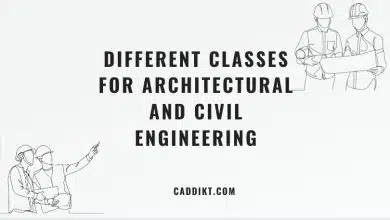Civil engineering is a highly specialized field that plays a crucial role in designing, constructing, and maintaining our built environment. From towering skyscrapers to intricate bridges and highways, civil engineers are responsible for shaping the physical infrastructure that surrounds us. In this article, we will explore the challenges and complexities involved in pursuing a career in civil engineering.
Understanding Civil Engineering
Civil engineering encompasses a broad range of disciplines, including structural engineering, geotechnical engineering, transportation engineering, environmental engineering, and more. The field requires a deep understanding of mathematics, physics, materials science, and geology, among other subjects. Civil engineers combine technical knowledge with creativity to develop innovative solutions for various infrastructure projects.
The Educational Journey
Becoming a civil engineer requires a rigorous educational journey. It typically starts with earning a bachelor’s degree in civil engineering, which usually takes four years to complete. The coursework covers a wide range of subjects, such as calculus, physics, mechanics, structural analysis, surveying, and construction materials. Additionally, students often engage in laboratory work and design projects to gain practical experience.
After completing a bachelor’s degree, some individuals choose to pursue a master’s or doctoral degree in a specialized area of civil engineering. These advanced degrees can further enhance one’s knowledge and open up opportunities for research and development in the field.
The Challenges of Civil Engineering
Civil engineering presents its fair share of challenges, making it a demanding profession. Here are some key aspects that contribute to the perceived difficulty of civil engineering:
Complex Design and Analysis
Civil engineers are tasked with designing structures and systems that must withstand various forces and environmental conditions. They must consider factors like structural integrity, load distribution, durability, and safety regulations. Achieving optimal design solutions requires a deep understanding of engineering principles and the ability to perform complex mathematical calculations.
Varied Project Requirements
Civil engineers work on diverse projects, each with its unique requirements and constraints. They may be involved in designing high-rise buildings, bridges, tunnels, dams, or transportation systems. This diversity demands versatility and adaptability from civil engineers who must constantly learn and apply new techniques, codes, and regulations specific to each project.
Project Management
Managing civil engineering projects involves coordinating teams, adhering to budgets and schedules, and ensuring compliance with legal and environmental regulations. Effective project management skills are essential for successfully delivering projects within constraints and meeting client expectations.
Fieldwork and Site Challenges
Civil engineers often spend time on construction sites, overseeing the implementation of their designs. This involves dealing with on-site challenges, such as unexpected ground conditions, weather constraints, and coordination with contractors and workers. Fieldwork requires practical problem-solving skills and the ability to adapt designs to real-world conditions.
Lifelong Learning
The field of civil engineering is constantly evolving, with advancements in materials, technologies, and construction practices. Civil engineers must stay abreast of these developments and continually update their knowledge and skills through professional development courses, certifications, and industry conferences.
Resources for Civil Engineers
Fortunately, aspiring civil engineers have access to various resources that can help them navigate the challenges of the profession. Here are some valuable resources:
- Professional Organizations: Joining professional organizations like the American Society of Civil Engineers (ASCE) or the Institution of Civil Engineers (ICE) provides access to networking opportunities, conferences, and industry publications.
- Online Learning Platforms: Websites like Coursera, Udemy, and LinkedIn Learning offer a wide range of online courses and tutorials on civil engineering topics, allowing engineers to acquire new skills at their own pace.
- Technical References: Books, journals, and technical publications serve as valuable references for civil engineers, providing in-depth information on specific topics and serving as a source of inspiration.
- Collaboration Tools: Software tools such as AutoCAD, Revit, and Civil 3D facilitate the design and analysis process, allowing civil engineers to create detailed models, simulate scenarios, and collaborate with other professionals.
- Professional Networks: Engaging with fellow civil engineers through online forums, social media groups, and professional networking platforms can provide valuable insights, advice, and support.
- Continuing Education: Civil engineers are encouraged to pursue continuing education opportunities, such as workshops, seminars, and webinars, to stay updated on the latest industry trends, codes, and regulations.
Overcoming the Challenges
While civil engineering presents its challenges, there are ways to overcome them and thrive in the profession. Here are some strategies:
- Strong Foundation: Building a solid foundation in mathematics, physics, and engineering fundamentals during your education sets the stage for success in civil engineering. Paying attention to core subjects and seeking clarification when needed can establish a strong knowledge base.
- Hands-on Experience: Seeking internships, co-op programs, or entry-level positions during your studies can provide valuable hands-on experience. Working on real projects under the guidance of experienced professionals allows you to apply theoretical concepts and develop practical skills.
- Continuous Learning: Embrace the mindset of lifelong learning. Stay curious, seek out new knowledge, and actively engage in professional development activities. Attend conferences, workshops, and seminars to expand your understanding and stay updated with the latest advancements in the field.
- Effective Time Management: Civil engineering projects often have strict deadlines and multiple tasks to juggle. Developing strong time management skills, setting priorities, and creating realistic schedules can help you meet project requirements without feeling overwhelmed.
- Collaboration and Communication: Civil engineering projects involve working in multidisciplinary teams. Developing strong communication and collaboration skills is crucial for effective teamwork. Being able to convey ideas, listen actively, and work harmoniously with others leads to successful project outcomes.
- Problem-Solving Skills: Civil engineers encounter challenges regularly, ranging from design complexities to unforeseen site conditions. Cultivating problem-solving skills, including critical thinking and analytical reasoning, enables you to approach challenges with a solution-oriented mindset.
- Mentorship and Networking: Seek guidance from experienced professionals in the field. Finding a mentor who can provide advice, share experiences, and offer valuable insights can significantly contribute to your professional growth. Additionally, actively participating in professional networks allows you to build connections and learn from others’ experiences.
Conclusion
Civil engineering is undoubtedly a challenging profession, requiring a solid educational foundation, continuous learning, and the ability to tackle complex design and management tasks. However, with dedication, perseverance, and a passion for creating a sustainable built environment, aspiring civil engineers can overcome these challenges and make significant contributions to society. By leveraging available resources, embracing lifelong learning, and developing essential skills, civil engineers can navigate the complexities of the field and thrive in their careers.







